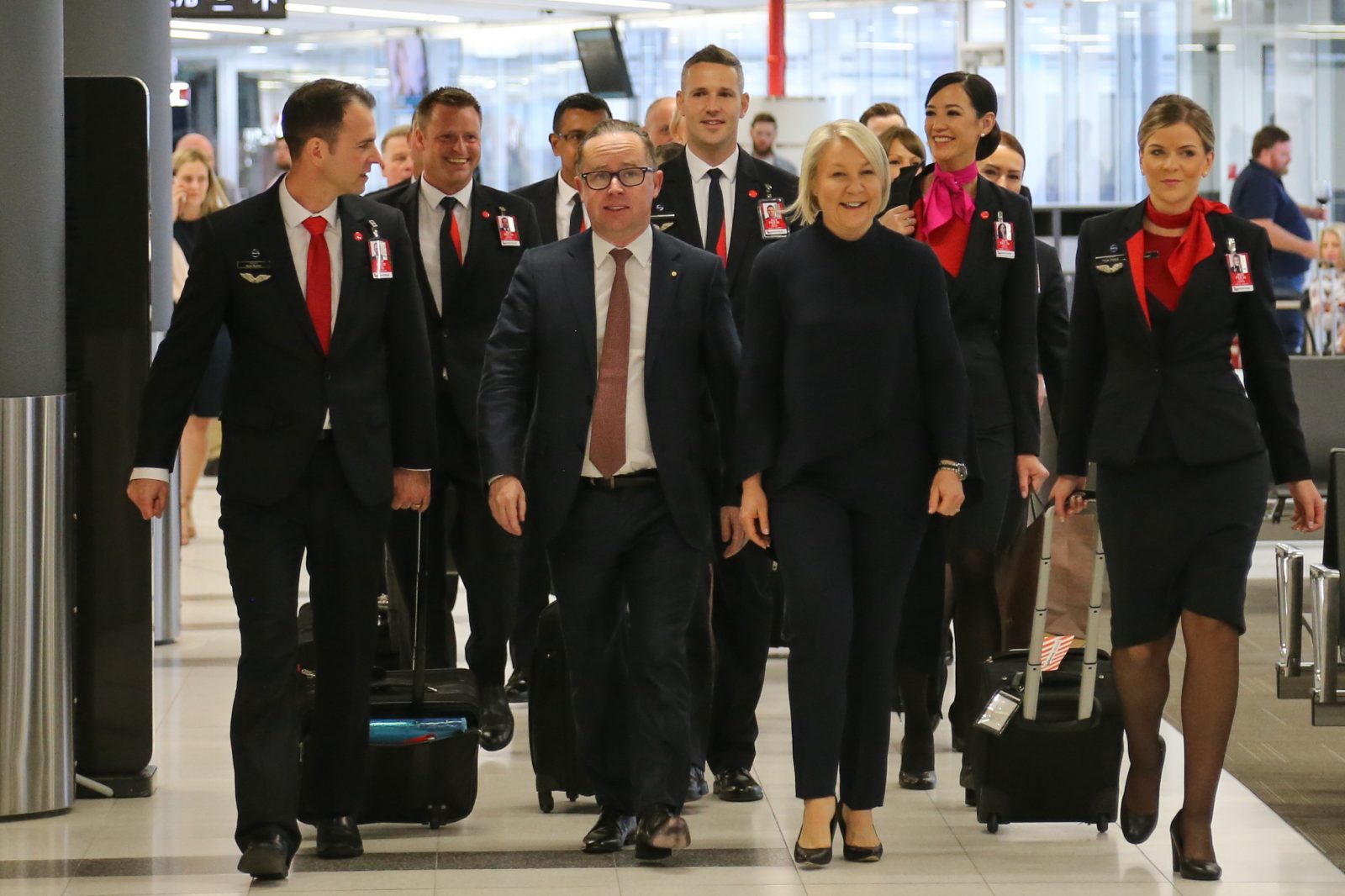
To much fanfare, Qantas launched the first ever direct scheduled flight between Australia and Europe at the end of March. A journey, which in 1947 would take seven stops and almost a week to complete, has today been cut down to just 17-hours. The flight between Perth and London shaves several hours off Qantas’ previous routing via Dubai and may well be vital to the Australian airline’s long-term fortunes.
Qantas has already said it plans to launch more direct flights to other European cities, including the French capital, Paris. Both Boeing and Airbus have even been tasked with creating a long-range aircraft that will one day be able to fly passengers direct from Sydney to London or even New York.
For now, however, all eyes are on whether Qantas can make a success of its 14,498km long Perth to Heathrow service. Bookings are said to be strong and it appears that Qantas has done a good job of convincing potential passengers that they’ll be well looked after on what is one of the longest flights in the world.
The same, unfortunately, can’t be said for the airline’s cabin crew. At least, that’s what a British union which represents Qantas’ London-based flight attendants has claimed in damning criticism of the airline. They say cabin crew working the new service are suffering fatigue and Qantas has responded by trying to “silence legitimate health and safety concerns.”
“While the future of flying is likely to centre on ultra-long-haul operations, Qantas has a responsibility to ensure that the safety and well-being of its passengers and cabin crew continues to be of paramount importance,” explains Lindsey Olliver, a regional officer for the Unite Union.
Olliver says the cabin crew operating this flight are, on average, working a 19-hour duty after which they get just 25 hours rest in a hotel room before flying back home. The epic flight covers a staggering nine time zones and is crewed solely by flight attendants from the London base.
Once back in the United Kingdom, those same crew can expect a few days rest before either doing the same route all over again or operating Qantas’ other ultra long haul, 13-hour flight from London to Singapore.
Yet, according to Unite, Dannielle Morgan, a Qantas cabin crew manager has “sought to dismiss concerns over fatigue” and instead claims the crew are simply “taking time to transition into new flying.” Cabin crew based at Heathrow Airport previously used to operate Qantas’ flights between London and Dubai – a mere seven hour, 30 minute flight.
And now Unite is claiming Qantas has adopted “anti-union tactics” in an attempt to silence cabin crew concerns.
“Qantas cabin crew must be provided with adequate rest down route between sectors to ensure they are fully able to complete their safety-critical functions without impairment whilst operating onboard an aircraft,” says Olliver
“A key element to this must include a ‘just safety culture’ that allows crew to discuss safety concerns, well-being and fatigue, free from threats and the fear of reprisals.”
Unite is calling on Qantas to end a ‘trip length trial’ which has resulted in cabin crew having their time down route slashed. In response, Qantas has told us:
“Making sure our crew have enough rest is important to us and something we’re very used to managing given our experience with ultra long-haul flying. These crew had previously been operating around seven hours of flying between London and Dubai, so we’re conscious there is a period of adjustment.”
“Safety is always our main priority and we’re committed to working through any concerns constructively.”
Related
Mateusz Maszczynski honed his skills as an international flight attendant at the most prominent airline in the Middle East and has been flying ever since... most recently for a well known European airline. Matt is passionate about the aviation industry and has become an expert in passenger experience and human-centric stories. Always keeping an ear close to the ground, Matt's industry insights, analysis and news coverage is frequently relied upon by some of the biggest names in journalism.







